Expert group projects
The nine expert groups, each headed by a steering committee member, the digital aspects and success criteria of areas such as public administration, science, education, culture and society, key location factors for professionals, sovereignty, start-up culture, internationalisation and innovation transfer are analysed and developed.
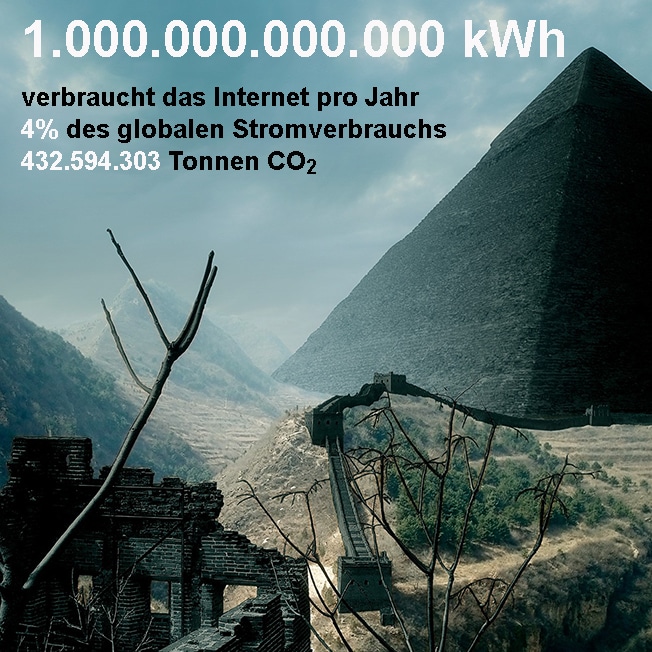
Minimal Carbon Internet
A project by Michael Saup in cooperation with karlsruhe.digital, the ZKM | Karlsruhe and the UNESCO City of Media Arts
Culture and society expert group
Two websites, at first glance hardly distinguishable from each other and yet completely different: The artist Micheal Saup has created a version of the former karlsruhe.digital website which has reduced its footprint by 95% – from 635 MB to 32 MB – while retaining the same appearance and functionality.
Because we leave our footprint, even in the digital world. The Internet enables free access to knowledge and free worldwide communication. But the world pays a price for this.
If the Internet were a country, it would consume the third largest amount of electricity in the world.
It’s hard to imagine, but let’s assume that electricity is generated exclusively from lignite, then the consumption of lignite briquettes in one year would be equivalent to the entire Great Wall of China or a pyramid with a side length of 1.5 kilometers and a height of an unimaginable 905 meters. Or if you were to line up all these briquettes instead, they would stretch from the earth to the center of the sun.
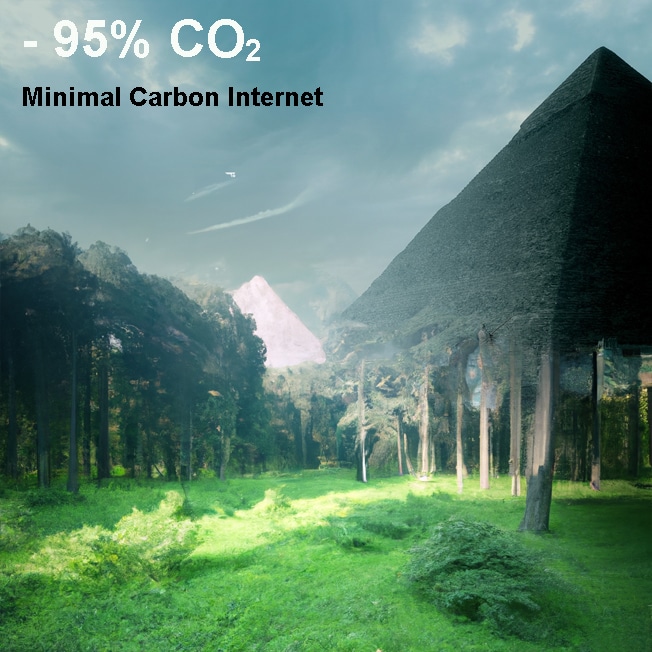
In numbers, websites, streaming services, social media and email consume about 1 PWh (petawatt hour) of electricity per year, which is 4% of global electricity consumption and generates about 432,594,303 tons of carbon dioxide (CO2).
The Minimal Carbon Internet project by artist Michael Saup shows that there are options for action. Saup – who has been researching the energy consumption of digital culture since 1999 – demonstrates how the power consumption of websites can be radically minimized.
Minimal Carbon Internet not only raises awareness of the connection between information and energy, but is also a concrete technical solution: Minimal Carbon Internet proves that it would be possible to significantly reduce the energy consumption of the Internet simply by optimizing websites.
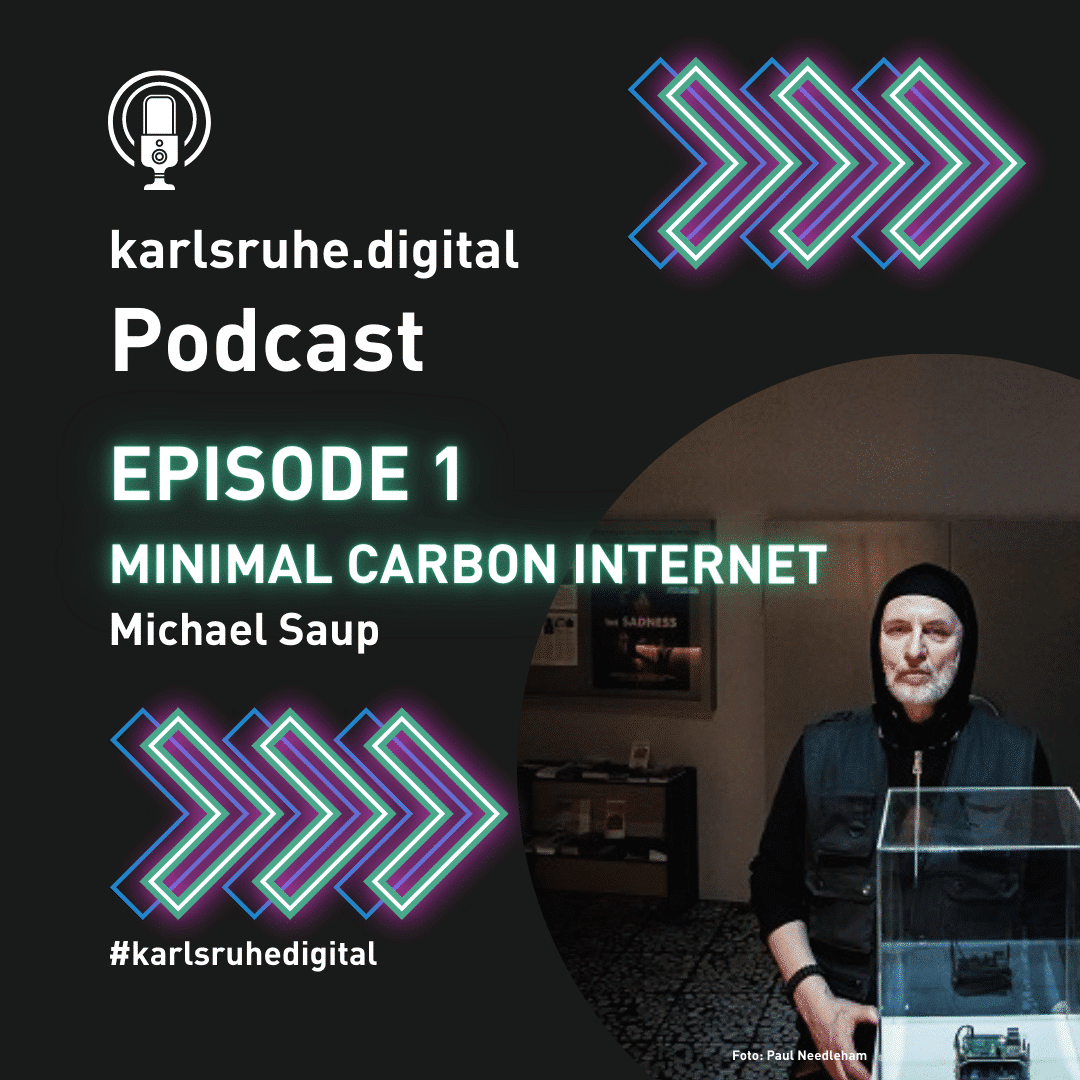
Interview with Michael Saup
In the first episode of the karlsruhe.digital podcast, Michael Saup talks to the two hosts about the project. He provides insights into his motivation, the background and how things will continue with Minimal Carbon Internet.
Further projects of the working groups
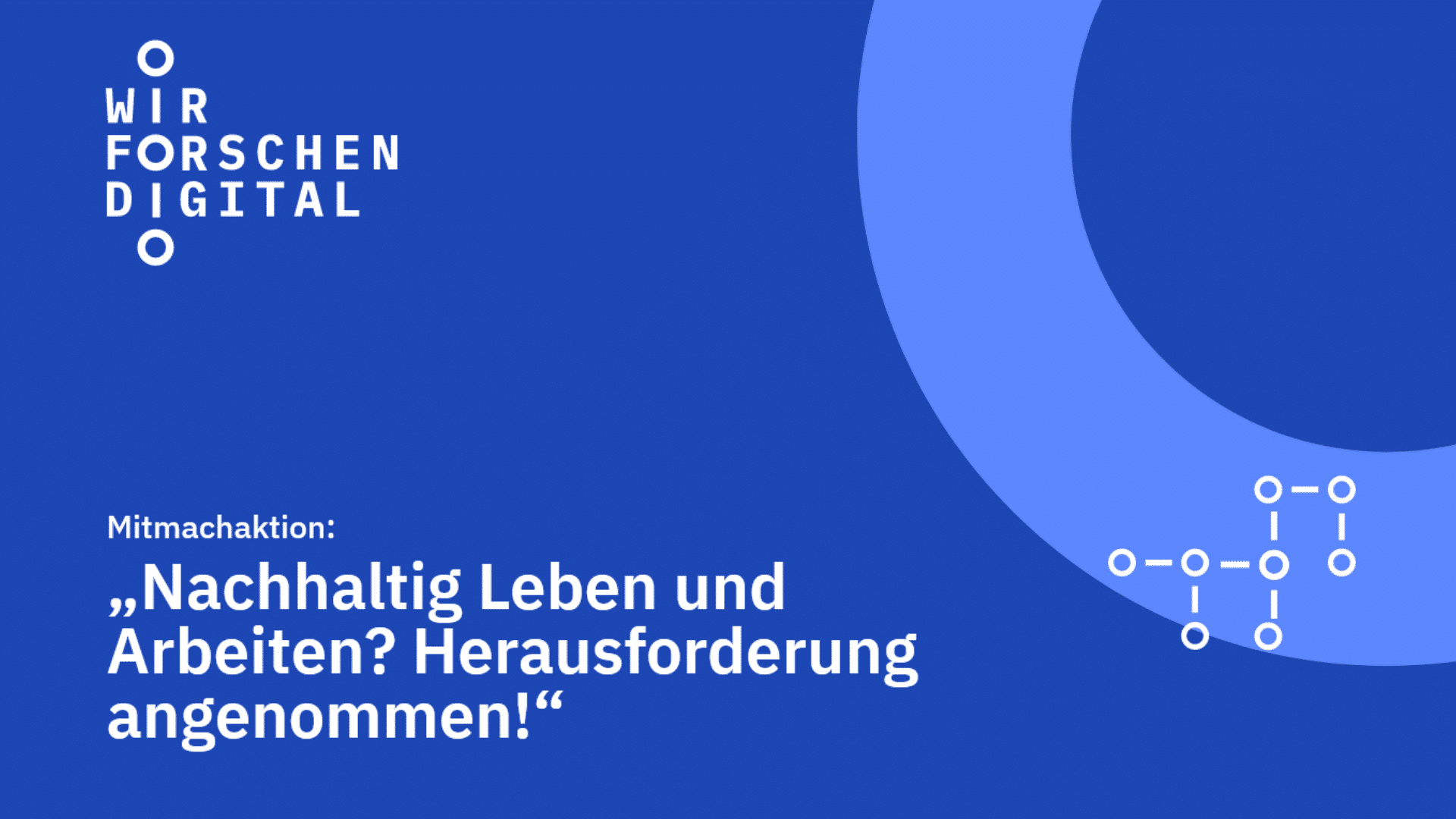
Working Group Science: WIR FORSCHEN DIGITAL
Are you feeling well?
Join us, do research with us!
What is it all about? Many things in everyday life happen in the digital space. In future, work and education will increasingly take place in hybrid form – i.e. online and offline at the same time. How are you doing with it? And what happens after the pandemic? What does this do to our well-being at home? Our common goal is to explore these effects together with you.
The aim of wir-forschen.digital is to mobilize your knowledge, creativity and curiosity about pressing social issues: From formulating research questions to evaluating and communicating the results, you can get involved – with simple digital citizen science tools that we provide here.
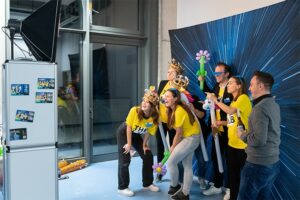
Expert group on start-up culture: #CyberLabFestival22
The #CyberLabFestival23 is THE annual highlight of the Karlsruhe startup scene!
In addition to the major players in the industry such as Trumpf and Co., the region’s most successful IT start-ups and hidden champions can also be found here.
2023 was all about applied AI: what exciting new technologies are currently being developed and how can they be turned into functioning business models? What best practices are there in the field of smart production? What ideas are AI start-ups currently launching?
Inspiring discussions and impulses on the topic of applied AI, plenty of space and time for networking and, as the highlight of the day, the CyberChampions Awards 2023 were presented in the evening.
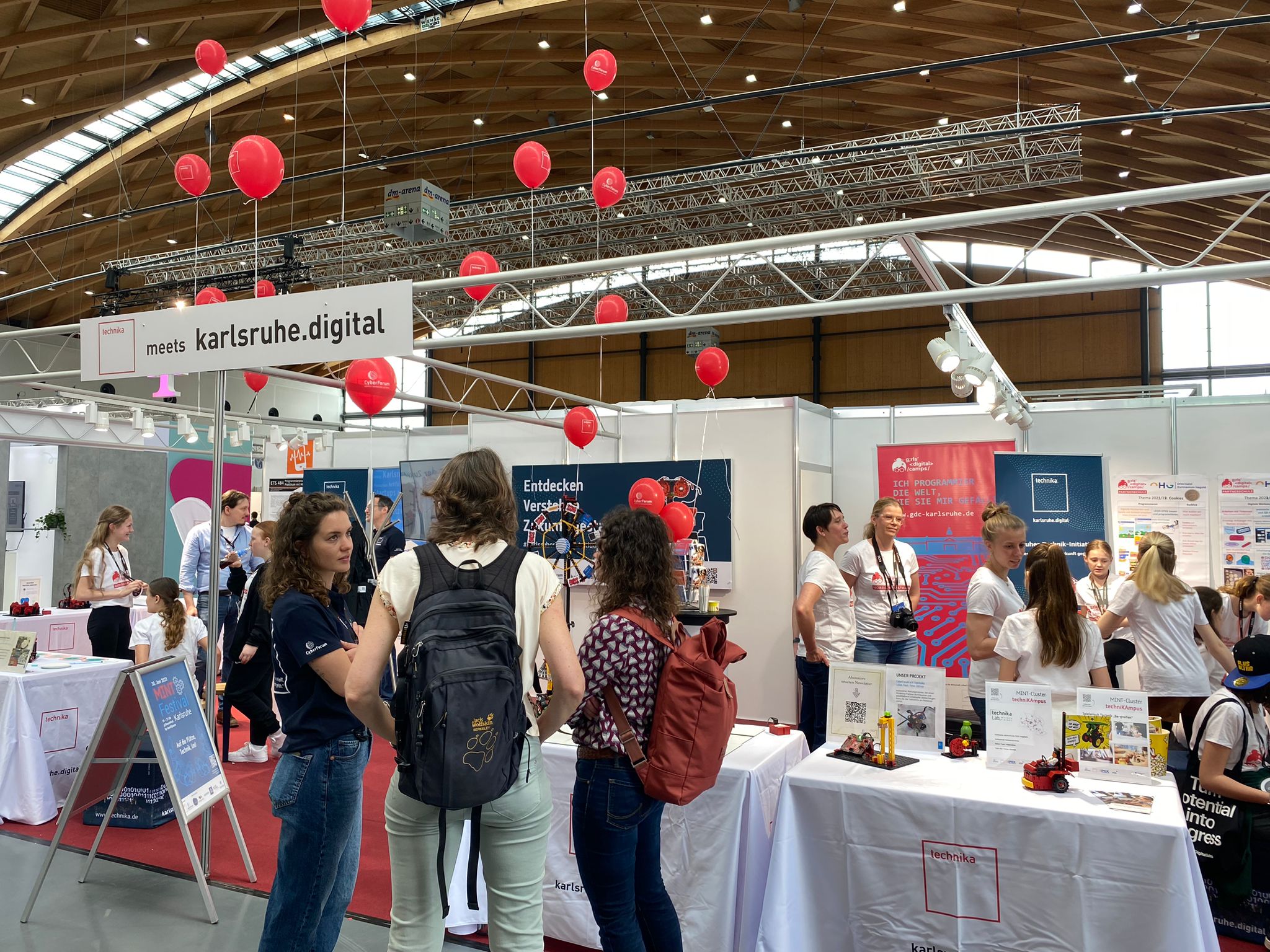
Education expertise group: karlsruhe.digital@LEARNTEC
fischertechnik AGs at LEARNTEC: Joint stand of karlsruhe.digital & technika
In addition to numerous companies and start-ups, the education working group of the karlsruhe.digital initiative will be represented at LEARNTEC together with the Karlsruhe Technology Initiative. Around ten teams of students will be presenting the latest projects from their fischertechnik and coding clubs at the stand.
At 74 schools in the city and district of Karlsruhe, the fischertechnik AGs motivate around 1,400 children and young people to train or study in a STEM subject (science, technology, engineering and mathematics) in a fun way. Primary school children can build bridges and cars, high school students can develop complex robots or production systems. At the stand of karlsruhe.digital and technika I Karlsruher Technik-Initiative at the LEARNTEC education fair, the offers for the promotion of young talent, such as the fischertechnik AGs and the Girls’ Digital Camps, in which girls are encouraged to take up programming, will be on display. Explained and presented by the inventors themselves: the pupils.